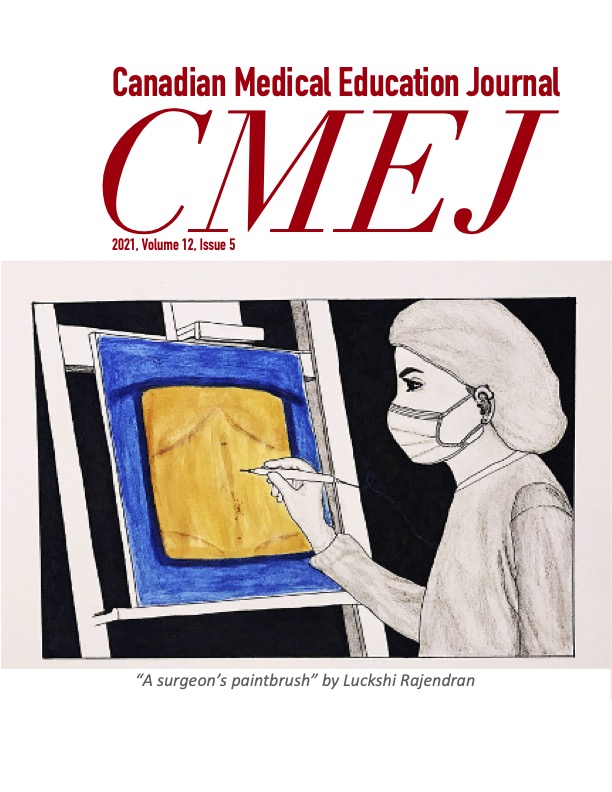Shaken and stirred: emotional state, cognitive load, and performance of junior residents in simulated resuscitation
DOI:
https://doi.org/10.36834/cmej.71760Abstract
Background: Patient resuscitation can be overwhelming for junior postgraduate medical residents due to its inherent complexity and high-stakes environment. Emotional states of unpleasant hyperarousal burden cognitive resources, contributing to cognitive overload and performance decline. Our objective is to characterize the associations between pre-scenario emotional state and junior residents’ cognitive load and performance in a simulated-resuscitation, to provide evidence for informed curricular development.
Methods: PGY-1 residents self-rated their emotional state before four simulated-resuscitation scenarios, and their cognitive load after. Faculty assessed performance with entrustment scores. Factor analysis identified the principal components of emotional state data. Linear regression models examined the relationship between pre-scenario emotional components, cognitive load, and performance scores.
Results: 47/47 medical and surgical residents (100%) participated and completed Emotional State (99.5%) and Cognitive Load (98.9%) surveys. Positive invigoration and negative tranquility were the principal components. Pre-scenario tranquility was negatively associated with cognitive load (b= -0.23, p < 0.0001), and cognitive load was negatively associated with performance scores (b= -0.27, p < 0.0001). Pre-scenario invigoration was negatively associated with cognitive load (b=-0.18,p = 0.0001), and positively associated with performance scores (b= 0.08, p = 0.0193).
Conclusion: Amongst junior residents participating in simulated resuscitation scenarios, pre-scenario agitation (negative tranquility) is associated with increased cognitive load, which itself is associated with lower performance scores. These findings suggest residency programs should consider developing curriculum aimed at modulating residents’ emotional agitation and reducing residents’ cognitive burden to improve resuscitation performance.
Downloads
Published
Versions
- 2021-11-02 (2)
- 2021-11-02 (1)
Issue
Section
License
Copyright (c) 2019 Shyan Van Heer, Nicholas Cofie, Gilmar Gutiérrez, Chandak Upagupta, Adam Szulewski, Timothy Chaplin

This work is licensed under a Creative Commons Attribution-NonCommercial-NoDerivatives 4.0 International License.
Submission of an original manuscript to the Canadian Medical Education Journal will be taken to mean that it represents original work not previously published, that it is not being considered elsewhere for publication. If accepted for publication, it will be published online and it will not be published elsewhere in the same form, for commercial purposes, in any language, without the consent of the publisher.
Authors who publish in the Canadian Medical Education Journal agree to release their articles under the Creative Commons Attribution-Noncommercial-No Derivative Works 4.0 Canada Licence. This licence allows anyone to copy and distribute the article for non-commercial purposes provided that appropriate attribution is given. For details of the rights an author grants users of their work, please see the licence summary and the full licence.











